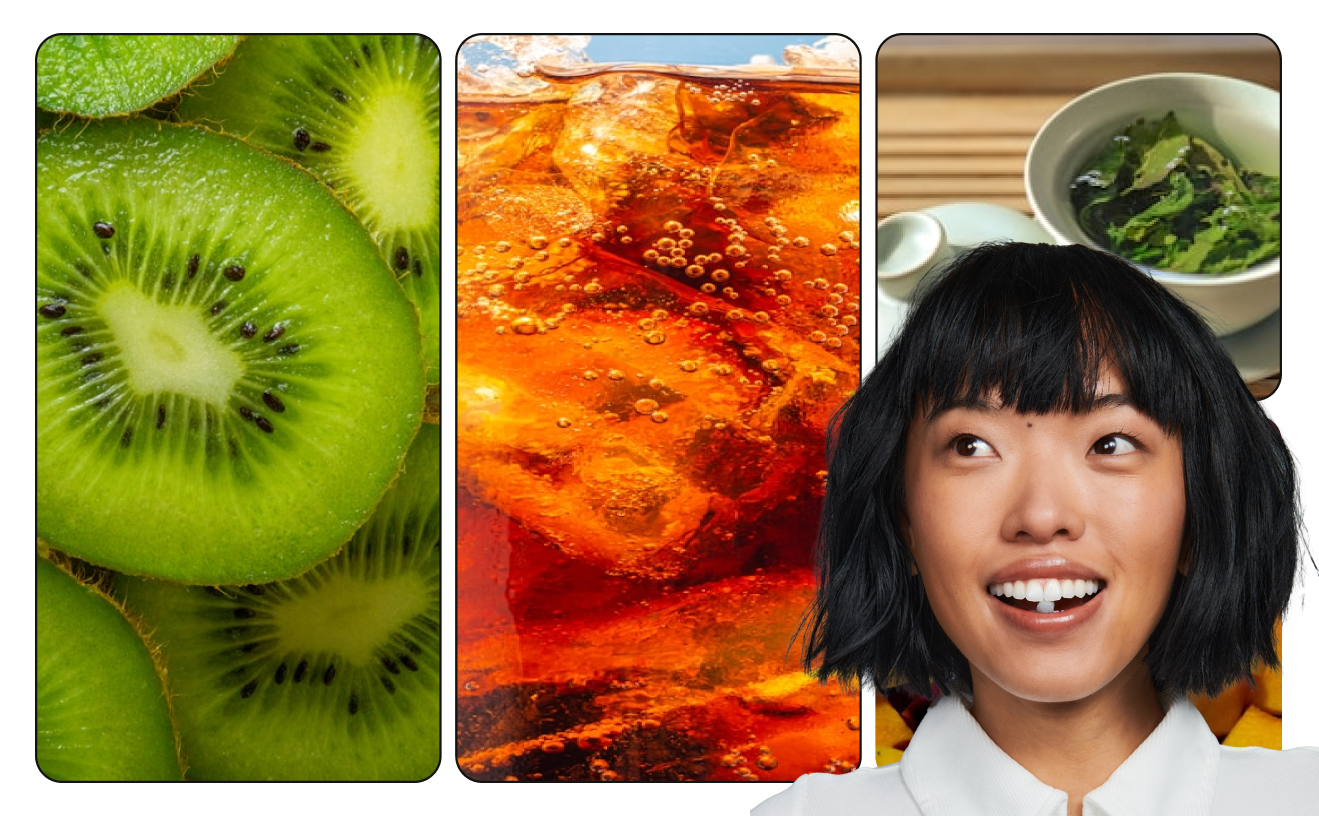What Does Hyaluronic Acid Do: Everything You Need To Know
We spend a whole lot of time in our skin, and — for many of us — providing our skin with some TLC is an important part of our daily routine.
After all, our skin does a lot for us. It serves as a barrier to protect us from external dangers such as pollution, bacteria, and foreign objects and helps maintain the body’s fluid and electrolyte balance.
But, as we age, the body’s natural production of many of the substances that help our skin thrive starts to slow, making that skincare TLC all the more valuable. One of those important substances is hyaluronic acid.
So what exactly is hyaluronic acid, how does it support your skin, and what should you look for when adding it to your daily skincare routine? Let’s break it down.
What Is Hyaluronic Acid?
Hyaluronic acid (or HA) is a glycosaminoglycan, a naturally occurring type of carbohydrate in the body. HA is most abundantly found in the skin, eyes, and connective tissues.
Hyaluronic acid is one of the body’s key moisturizers. Its main function is to lock water into the tissues within our skin and joints to keep them hydrated — and it is quite good at this role.
Hyaluronic acid binds directly to water molecules in the skin to retain moisture, and it can absorb over a thousand times its weight in water.
What Are the Benefits of Hyaluronic Acid?
As a natural moisturizer and lubricant, hyaluronic acid provides a number of benefits to the body. Hyaluronic acid is available as an ingredient in skincare products like creams, balms, and moisturizers, but it is also available as an oral supplement. The exact benefits you experience can vary depending on the form of hyaluronic acid you choose to use.
Hydrating
Approximately half of all hyaluronic acid in the body is found within the skin. As a humectant, HA serves as a sponge that holds water within the skin, keeping it from evaporating as quickly. In this way, hyaluronic acid products can support proper skin moisture.
When the skin doesn’t contain enough water, it can become dry, irritated, and flaky. Water content also helps keep skin supple and soft and maintains skin elasticity. Thus, using skincare products that contain hyaluronic acid can help ensure that your skin stays adequately hydrated.
As a powerhouse for skin hydration, hyaluronic acid helps protect the skin and keeps it looking and feeling its best.
Anti-Aging Properties
Hyaluronic acid does wonders as a skincare ingredient, but our bodies start to make less of it as we age.
Like many substances found within the skin, such as collagen and squalene, our natural production begins to drop around the age of 30. Along with age, outside factors such as smoking, pollution, and the sun can decrease our HA levels.
The decline in HA levels is in part responsible for the appearance of wrinkles and fine lines over time, especially seeing as dehydrated skin is more likely to show wrinkles.
Luckily, hyaluronic acid found in skincare products can provide the same benefits as those naturally produced in the body. The water-retaining abilities of hyaluronic acid can help reduce the appearance of signs of aging, improve skin tightness, and reduce the appearance of lines and wrinkles.
Skin Barrier Protection
Dehydrated skin is more likely to dry out and crack, making it less effective as a barrier. Skin in this state can break more easily — think about those cold, dry days when your hands may start to chap and bleed.
The good news is that hyaluronic acid can help bolster our skin’s ability to keep out bacteria and foreign objects by soothing irritation and reducing dry skin. Hydrated skin is better able to protect itself, and hyaluronic acid’s ability to moisturize the skin helps support a healthy and strong skin barrier.
Helps Ease Joint Discomfort
For those of us who experience swollen joints or chronic joint discomfort, hyaluronic acid can provide the support our poor joints are craving.
Hyaluronic acid is naturally found in the joints and plays an important role in making sure the space between two bones where they connect stays sufficiently hydrated and lubricated. This helps ensure the bones aren’t grinding against one another, which is known to cause that unpleasant feeling in the joints.
This benefit comes from hyaluronic acid supplements, rather than topical products containing the ingredient.
Keep Acid Reflux At Bay
Acid reflux is nothing if not uncomfortable, as most of us can attest to from one point or another.
Acid reflux takes place when stomach acid moves up into the esophagus after eating, leading to chest discomfort. Acid reflux can also wear on the lining of the esophagus over time.
So where does hyaluronic acid come in? These useful polysaccharides can aid in the recovery process of the esophagus lining and can help soothe related discomfort. While more research is needed, current studies suggest that hyaluronic acid supplements can help reduce acid reflux systems.
Eye Support
As we age, we may experience more discomfort related to eye dryness. This may be due to reduced tear production and can result in irritated and uncomfortable feelings.
The good news is that hyaluronic acid’s hydrating abilities have been found to work on dry eyes as well as the skin. If the natural HA levels in the eyes are not maintaining proper hydration, eye drops containing hyaluronic acid can provide support.
Hyaluronic acid eye drops are also used to help limit swelling and support proper wound healing during eye surgery.
How Can I Choose the Right Hyaluronic Acid Skincare Product?
Hyaluronic acid can be found in dietary supplements, eye drops, doctor-administered injections, and topicals. If you’re interested in the benefits of HA for your skin, a topical product containing this ingredient is going to be your best bet.
But, what else should you look for?
When purchasing a hyaluronic acid skincare product, one important factor is its molecular weight. You’ll want to look for HA molecules with a lower molecular weight.
See, hyaluronic acid comes in different sizes. The higher the molecular weight is, the bigger the HA molecule is. And while large molecules can more easily bind with water, they cannot penetrate the skin as well as smaller HA molecules.
That means that when applied directly to the skin, hyaluronic acid with a higher molecular weight will sit on the skin’s surface, while those with a smaller molecular weight will move deeper into the skin to provide a deeper level of hydration.
Recent studies have found that hyaluronic acid with a molecular weight between 50 and 1,000 kDa is best absorbed into the skin and helps retain moisture and reduce dryness and irritation.
Because hyaluronic acid with a low molecular weight can penetrate deep into the skin, it’s also best to use a product with no harsh chemicals or additives, as the HA may be able to carry those ingredients further into the skin.
At Bites, we only use clean and natural ingredients with no harsh chemicals or additives, so you can enjoy the deep nourishment hyaluronic acid provides worry-free.
Are There Any Side Effects of Hyaluronic Acid?
Because hyaluronic acid is naturally made within the body, there are very few risks associated with hyaluronan skincare products, and allergic reactions are extremely rare, even for those with sensitive skin.
When applied directly to the skin or used in skincare products, hyaluronic acid is extremely safe to use on all skin types. However, you should check in with your doctor or dermatologist before using hyaluronic acid directly on the skin if you have scleroderma, as HA may exacerbate certain skin ulcers associated with scleroderma.
Topical products containing hyaluronic acid are widely considered to be very safe. If you have questions or worries about a product with this ingredient, it is best to speak with your dermatologist to get your questions answered and confirm that a certain product will be safe for you and your skin.
In terms of hyaluronic acid supplements, there is little research into how hyaluronic acid affects pregnant and breastfeeding people, so it is generally recommended hyaluronic supplements be avoided during these times.
Hyaluronic acid injections directly into the joints have been used to help ease joint discomfort, but this method is associated with more potential side effects than either HA topicals or oral supplements.
How Can Bite Help?
At Bite, we believe that caring for our bodies and the planet go hand in hand. We are committed to our mission of sustainability without sacrificing quality — our products are packaged in sustainable packaging, and we use glass jars and refillable options as opposed to conventional plastic tubes.
Our travel-friendly Body Balm contains only 14 clean and natural ingredients, including hyaluronic acid. Our other ingredients include shea butter, vegan squalane, and rosehip oil for optimal moisturizing and soothing benefits.
Our ultra-nourishing, non-greasy balm comes in a plastic-free, refillable case, and our waterless formula doesn’t require any harsh preservatives or parabens. The lightweight balm will glide easily over the skin to nourish dryness, soften texture, and repair damage.
When you finish your first bar of body balm, you can order a refill that fits perfectly into the case.
Bottom Line
Hyaluronic acid is a hydrating, natural molecule that can help reduce signs of aging, retain moisture, and rejuvenate the skin. While naturally produced in the body, you can benefit by adding topicals containing hyaluronic acid to your skincare regimen.
Hyaluronic acid is one of the stars in our body balm. With Bite, you can feel good about yourself and your skin while also feeling great about your carbon footprint.
Sources
Efficacy of a New Topical Nano-hyaluronic Acid in Humans | PMC
Hyaluronic acid: A key molecule in skin aging | PMC
Oral hyaluronan relieves knee pain: a review | Nutrition Journal
The 24-hour skin hydration and barrier function effects of a hyaluroni | CCID


